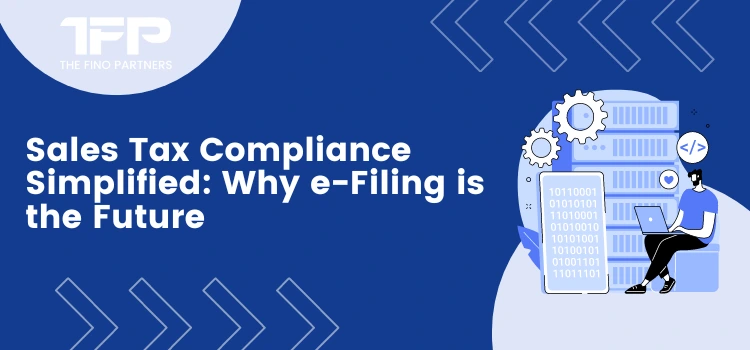Understanding and adhering to sales tax compliance by state is of utmost importance. The varying rates, rules, filing procedures, and deadlines across the nation can be a minefield for even the most diligent business owners. Overlooking tax obligations can lead to daunting notices and unnecessary fees.
To allow the new system to breathe and work out any initial kinks. E-invoicing is only applicable to businesses falling under a specific turnover threshold. But gradually, as more and more companies take up e-invoicing and familiarize themselves with the new system, the threshold will be brought down, and more businesses will be brought under the radar of e-invoicing. This article deals with Sales tax compliance. It also explores the importance of e-files in future.
E-invoicing is likely to subsume the e-way bill system.
In a statement to the media, Finance Secretary Ajay Bhushan Pandey said that e-invoicing is likely to replace the current e-way bill system in the future. The movement of goods is authorized if a company has a valid GST invoice and an e-way bill for orders that meet the conditions. The CBIC has notified us that carrying physical copies of a tax invoice will no longer be mandatory for companies that have taken up e-invoicing. If the company has generated an invoice reference number (IRN) for the goods in question and a QR code, both an IRN and a QR code are more than enough documentation to verify the goods being moved.
GST evasion to be kept in check
Reports stated that India faced losses worth ₹48,000 crore due to tax evasion between April and December 2018. Mandatory e-invoicing ensures that every single B2B GST invoice generated by a business maintains a standardized schema so that it can be quickly processed by supporting systems and electronically authenticates the validity of the GST invoice by issuing an invoice reference number. This invoice reference number must be mentioned while filing GST returns, allowing a specific portion of details in the GST returns forms to be auto-populated, thereby eliminating the issue of fake invoicing.
A paperless invoice regime is the future.
E-invoicing will significantly reduce manual paperwork in GST operations and allow faster authentication of invoices. Additionally, a digital QR code or Quick Response Code for B2C transactions will reduce the turnaround time for verification of goods at revenue checkpoints, thereby reducing losses due to delayed deliveries. Since each GST invoice will be uploaded to the common portal for electronic authentication, details of the invoice will be auto-populated while filing GST returns.
Big data to improve GST best practices
With a good chunk of tax operations being digitized, tax authorities will have mountains of data at hand and this data can be used to analyze and improve GST practices. Since data will be structured because of the standardized schema, tax authorities will also be able to detect and weed out malpractices, encourage and advocate GST compliance.
Failure to produce an e-invoice can attract a penalty.
While the government is lenient in the initial phase of e-invoicing and has issued an extension to adapt to e-invoicing, it is likely to be less considerate when e-invoicing rolls out for businesses under the lower threshold. This is mainly because more than enough time has been allotted for enterprises to upgrade their systems, adopt suitable technology, and prepare for e-invoicing under GST. Moving forward, companies who do not adhere to GST e-invoicing will not only have to face penalties per invoice, but their GST invoice will be deemed invalid, meaning any goods being moved by such a business are likely to be detained, they will have to face heavy losses because their supply chain system will be disrupted. Payments from their customers will get stuck, affecting their cash flow.
Some of the most significant benefits of e-invoicing are error-free data, improved efficiency, reduced cases of data reconciliation, faster processing of input tax credit claims, increased transparency, reduced tax and compliance risk and a significant reduction in a business's carbon footprint.
End Note
To conclude, e-invoicing is here to stay and will be mandatory for all businesses in the future. So, the earlier you adopt an e-invoicing solution, the better because preparing for e-invoicing, understanding the touchpoints in the business processes which will get affected, upgrading internal systems, evaluating different methods of generating e-invoices, choosing a comprehensive e-invoicing technology solution, integration with business systems, testing business scenarios and finally going live will also require effort and time.
With Fino Partners, you can easily hire skilled Finance and Accounting Professionals equipped to manage your financial operations with expertise and precision. Outsourcing these crucial roles through Fino Partners reduces costs and provides access to a global talent pool, ensuring your financial strategies are executed flawlessly. It can bring a sense of relief to business owners, knowing that their financial operations are in capable hands.
Are you ready to take advantage of financial management in future? Contact Fino Partners now to explore how our Virtual CFO services.




























